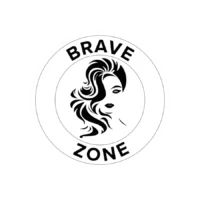Dealing with insults and control from your partner can be tough. People often say it’s normal to react, but let’s dig deeper. When faced with this storm, we actually have two choices: react or respond. Our automatic response tends to be reacting, but the real power comes from choosing to respond consciously. Understanding and navigating triggers can play a large role in our choice to respond consciously and can be crucial in our journey to breaking free from codependency.
Understanding Triggers
Triggers are a result of situations or behaviours that stir up strong emotional reactions, often tied to past experiences or traumas. It happens when something in our current situation unconsciously reminds us of a past event, triggering an emotional response. For instance, if childhood experiences left you feeling like your needs didn’t matter, similar situations in adulthood can act as triggers.
The Power of Subconscious Beliefs
In spite of our conscious efforts, the beliefs embedded in our subconscious from ages 0-6 hold substantial control over our lives. Consider a belief like “my needs don’t matter,” internalized during these formative years. Your subconscious are likely to attract people and situations that reinforce this belief. Recognizing this link is key to understanding why you may draw in a partner who mirrors your perceived unworthiness.
Relationships are oftentimes codependent. We attract each other to bring out each other’s unconscious triggers.
The Trap of Victimhood
One common reason people stay stuck is the failure to view triggers as teachers. Falling into victimhood—blaming others or seeking distractions—hinders transformation. It’s disheartening when you embody healthy relationship values but experience a lack of respect and commitment to improving the relationship from your partner. Recognizing these patterns as triggers opens the door to change.
Moving from feeling stuck and helpless to taking control of your responses is vital. In a codependent relationship, where you prioritize your partner’s needs over yours, facing disrespect can stir strong emotions. This reliance on their treatment makes it tough to respond objectively. Shifting to a healthier dynamic means breaking free from this pattern, fostering independence, and responding more consciously to triggers.
Here’s where codependency comes into play. In a codependent relationship, individuals often prioritize the needs and opinions of their partner over their own. If your partner treats you with disrespect, reflecting your subconscious beliefs that you don’t matter, you’re likely to get upset because you’re reliant on their treatment toward you. Codependency intensifies the emotional charge of triggers, making it challenging to respond objectively.
On the other hand, fostering an interdependent mindset allows you to see disrespectful behavior through the lens of critical thinking. You view it as an opportunity to work through past trauma and challenge beliefs internalized in childhood. This shift from codependency to interdependence empowers you to respond consciously, turning triggers into stepping stones for personal growth.
Imagine your partner makes a demeaning comment about your appearance. In a codependent mindset, you might feel deeply hurt and seek validation from your partner to feel worthy. This reliance on external validation reinforces the belief that you’re not enough. Transitioning to an interdependent mindset allows you to pause, reflect on the trigger, and respond from a place of self-assurance. You set a boundary by calmly stating, “I won’t tolerate disrespectful comments. Let’s communicate with kindness and respect.” This shift empowers you to reshape the dynamic and prioritize your emotional well-being.
Breaking Free From Codependency
Breaking free from codependency involves a conscious shift from reacting to responding. Understanding that your partner’s behavior stems from their trauma, just as your reactions result from yours, facilitates this shift. You move from feeling powerless to recognizing your ability to respond, disrupting the cycle.
Practical Tips & Examples
Sitting with triggers when controlled or disrespected involves checking in with yourself. Drop into your body, explore your feelings, and challenge underlying beliefs. For instance, if insulted for spending time alone, assert, “I’m entitled to me-time. I’ll talk to you when I’m ready.” By avoiding engagement in insults, you reclaim power. Your calm, factual responses send a clear message, disrupting the bully’s desire for reactions.
These practices, rooted in understanding triggers, challenging beliefs, and conscious responses, guided me through overcoming trauma, paving the way for healthier relationships. Understanding that our subconscious beliefs shape the dynamics of what we attract, the essential work involves reprogramming the conditioning imprinted during childhood. Reprogramming beliefs from “my needs are not important” to “I am worthy of respect” significantly alters our attraction. The key isn’t finding the right person but becoming the right person.
Embracing triggers as opportunities for growth involves navigating the realm of subconscious programming. This transformation requires breaking free from codependency and evolving beyond ingrained patterns. Hypnotherapy helps reshape your subconscious beliefs to match your conscious relationship goals. If you desire a respectful relationship, this powerful tool transforms the quality of experiences you attract.
Book your confusion clarity call today, and get ready to experience a big breakthrough!














